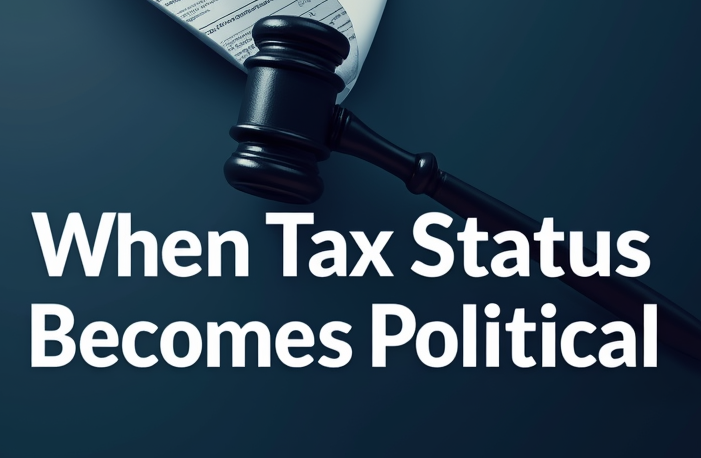TNPA State Legislative Report | March 2020
Coronavirus concerns have delayed regular legislative sessions in seventeen States. Legislative work in other States is winding down. Given the delays, it is likely that these seventeen States, and perhaps others, will convene regular or special sessions to address “unfinished business.” The coronavirus pandemic may have changed the topic of legislative business for now, but it has also extended legislative business and, as always, any topic could regain prominence.
Of course, the overarching issue is the federal Coronavirus Aid, Relief and Economic Security (CARES) Act. This nearly $2 Trillion aid package is working its way through Congress – albeit, not as fast as any of us wants.
Within this package are three provisions important to the nonprofit community. Following is current as of the time of writing (morning of March 24):
A Temporary Universal Charitable Deduction– The latest version of the CARES legislation includes a temporary (for contributions made in calendar year 2020) universal charitable deduction – capped at $300 – open to all taxpayers, regardless of their level of income. Some of the initial conditions discussed for this provision, including restricting benefits to nonprofits directly responding to COVID-19 and creating a floor requirement of 1% of adjusted gross income, have fallen away in the more recent legislative negotiations.
Small Business Loan Forgiveness – As part of the CARES legislation, there is a provision for both nonprofit and for-profit organizations to receive forgiveness on that portion of a Small Business Administration-approved loan which is used to compensate employees earning less than $100,000/year. There is some “fine print” on this one. As of this writing, the nonprofit provision applies ONLY to 501(c)3’s. Also, the provision applies to organizations of 500 employees or fewer (still no clarification if part-time employees are included in this calculation). Finally, it covers compensation retroactively for the period March 1 through June 30, 2020.
Expanded IRA Charitable Rollovers – This provision has yet to be finalized, but it appears that the ultimate package approved by Congress may include a provision, which would allow seniors starting at age 65 to make tax-free IRA rollovers to charities, rather than having to wait until age 70 1/2 as required by current law.
Postal
Yesterday, TNPA along with Alliance of Nonprofit Mailers, DMAW, and other mailer associations filed a motion asking the Postal Regulatory Commission to hold its ten-year regulatory review in abeyance. We began by saying:
Pursuant to 39 C.F.R. § 3001.21, the undersigned parties respectfully move that the Commission formally hold this proceeding in abeyance and refrain from issuing a final order until the current declared national emergency concerning the novel coronavirus disease (COVID-19) has been rescinded. Doing so will serve two purposes: (1) it will allow the mailing industry, ratepaying customers, and the Postal Service to focus on maintaining critical operations without diverting resources to further proceedings in this docket, including potential appeals of a final order, and (2) it will ensure that any Commission order issued in this proceeding will reflect the significant societal, economic, legal, and regulatory changes that are likely to result from the current emergency.
Data Privacy
Federal – Until the coronavirus emergency passes, there is unlikely to be any discussion in Congress of data/privacy legislation. Nonetheless, Senator Jerry Moran (R-KS) recently introduced a comprehensive national privacy bill, which importantly includes a clear and unambiguous pre-emption of current or future state privacy statutes. The Moran Bill does not have a private right of action.
Washington State – SB 6281 died after failing to emerge from conference committee before the legislature adjourned on March 12. The Senate version did not contain a private right of action.
The failed bill, which was to be known as the Washington Privacy Act, is likely to be the first draft of next year’s data privacy bill in Washington.
VIEW OUR DATA PRIVACY QUICK GUIDE
Charitable Solicitation
California AB 2936 would create a separate reporting category for donor advised fund sponsoring organizations. Its provenance is unclear but the sponsor (Wicks) is the same that carried water last year for interests seeking significant reforms to DAF sponsor operations.
The current legislative language may be nothing more than a placeholder for an aggressive reform agenda that could emerge by way of subsequent amendment.
California Internet Fundraising Bill – This legislation derives from a two-year project led by the Attorney General’s office. At this writing, a bill has not been introduced nor has the AG shared his “final” language. It is concerned with various forms of online fundraising other than that conducted by charities themselves. The AG invited comments on a previous draft.
The Nonprofit Alliance in, collaboration with other industry advocates, responded with substantial and annotated comments. This requires a call out: our comprehensive comments would not have been possible without the volunteer assistance of skilled, experienced lawyers Karen Wu (Perlman & Perlman), Greg Lam (Copilevitz, Lam & Raney), and Chip Watkins (Webster, Chamberlain & Bean). If you would like copies of the AG’s previous draft and/or TNPA’s commentary, email Bob Tigner at rtigner@tnpa.org.
State Sales Tax
As we all begin to work remotely, this is a good time to take stock of your tax situation. The state tax world has changed significantly since June 21, 2018, when the U.S. Supreme Court decided the case of South Dakota v. Wayfair. In that case, the Court held that a retailer that merely made sales into a state can be required to collect that state’s sales and use tax; if it does not it is liable for the sales tax on all of its taxable sales. This is called “economic nexus.” As a result, all but two states—Florida and Missouri—of the 45 states and the District of Columbia that impose sales taxes on the sale of tangible personal property and certain specified services have adopted so-called economic nexus laws. While nonprofits generally do not make sales, we do circulate direct mail. An order to produce and distribute direct mail materials is subject to sales tax, unless there is an exemption, and the printer/mail house may now include a sales tax charge to its nonprofit customer.
Brann & Isaacson, the law firm that argued the Wayfair case, has prepared a memo and set of charts for TNPA to assist nonprofits and their printer and mailshop partners in determining sales tax liabilities. These will be updated as needed. Access the downloadable guide here.
Governance
Idaho HB 431 passed the Senate on March 18. The bill is now pending delivery to Republican Gov. Brad Little. The bill to be known as the “Idaho Charitable Assets Protection Act,” would make it unlawful to knowingly use, or allow to be used a charitable organization’s charitable assets in a manner that is inconsistent with:
- Law applicable to the charitable asset.
- The restrictions contained in a gift instrument regarding the charitable assets.
- The charitable purpose of the charitable organization.
It would also require charitable organizations to provide written notice to the attorney general of its intent to dissolve, convert to a non-charitable organization, terminate, or dispose of all of its assets. If the attorney general disapproves of the proposed dissolution or conversion, then the organization would not be allowed to proceed for 14 days in order to give the attorney general the opportunity to file a lawsuit seeking to block the proposal. The bill would also grant the attorney general the opportunity to bring enforcement action for violations of the bill’s provisions. California already has a similar law on the books.
This legislation gives statutory authority to the AG for powers which are exercised in most states, whether by statute or by common law. In other words, nothing to worry about here, short of the AG going off the rails during rulemaking.



